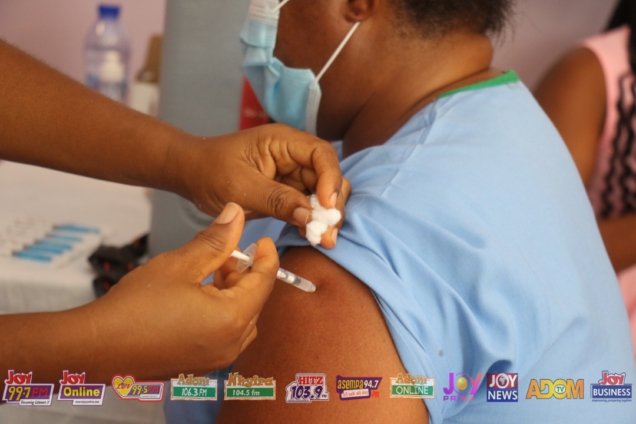A report by SEND Ghana has recommended to the Ministry of Health and the Ghana Health Service (GHS) to – as part of the Covid-19 vaccination exercise – adopt the use of a communication strategy that would focus on the protection of families and friends from the disease.
This, according to the organisation, will boost the confidence of many Ghanaians to participate in the rollout of future Covid-19 vaccination drives.
The recommendation was captured in its latest report titled, ‘Monitoring Compliance of Ghana’s National Deployment and Vaccination Plan (NDVP) and Citizens’ Covid-19 Vaccination Experience’.
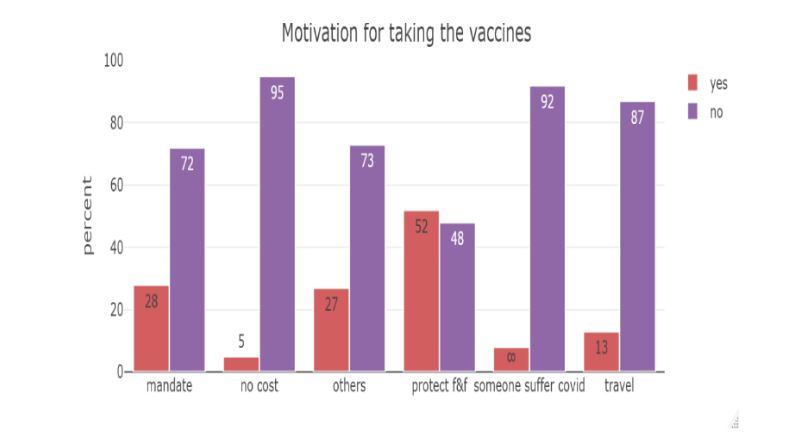
Among other objectives, the report assessed the extent of vaccination uptake among prioritised groups using data from the Covid-19 vaccination database, the distribution of cold chain equipment and logistics, adherence to the Covid-19 safety protocols and citizens’ experiences, opinions and motivations for vaccination.
It was carried out in eight districts of the Greater Accra and Ashanti regions (four districts each), with respondents comprising health workers, teachers and the general public.
The monitoring found that 77% of the respondents, including health workers and teachers, took the vaccine to protect their families, friends and close relatives from contracting the coronavirus.
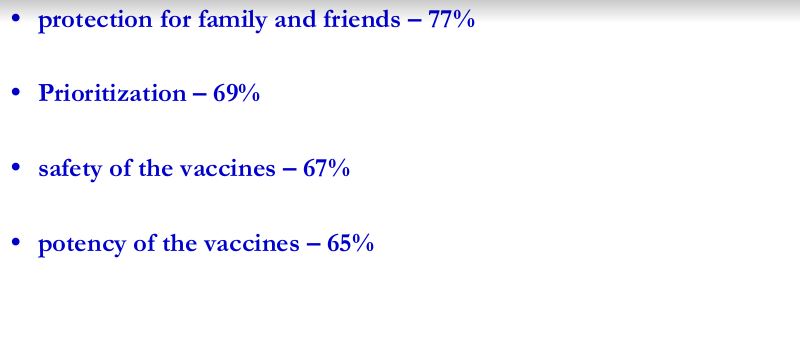
But in a stark contrast, some of the respondents who had not yet received a jab of any Covid-19 vaccine said it was because they were afraid of possible side effects, had less education or were not sure about the vaccine’s effectiveness.
It is part of the reasons SEND Ghana wants health authorities to sustain the vaccine promotion efforts and campaigns to encourage more people to vaccinate to ensure the country attains herd immunity.
“Health promotion efforts for the Covid-19 vaccination exercise and subsequent vaccination exercises should adequately address possible side effects and safety as these are key for uptake.
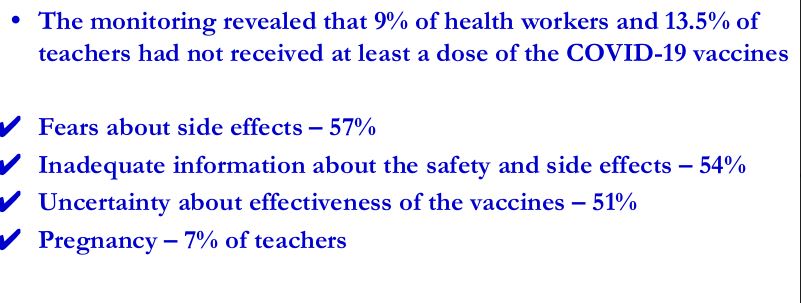
Covid-19 vaccination communication messages should focus on the protection of family members and friends from the disease and possible deaths and less on mandates restricting access to services and employment reasons,” part of the report recommended.
SEND Ghana recalled that after the emergence of the Covid-19 vaccines, Ghana was the first to receive over 600,000 vaccines from the Covax facility in February, 2021.
The vaccination exercise targeted about 17.5 million Ghanaians, including pregnant women and teenagers.
According to the organisation, it was important to monitor how people received the rollout of the vaccines in order to restructure new ones should there be any other pandemic in the country.
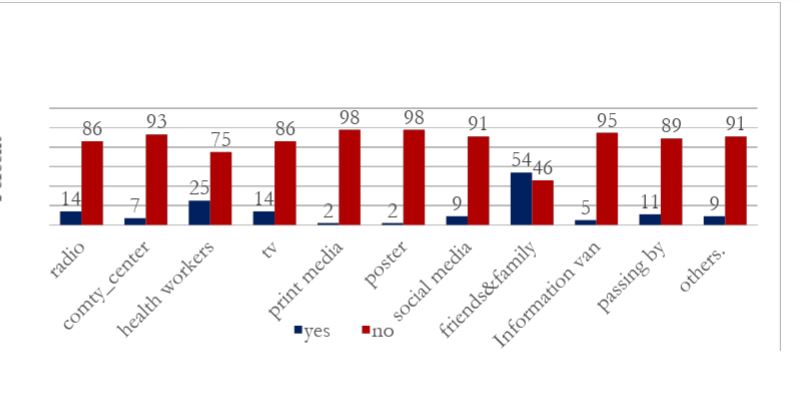
Although the findings from the research showed that compliance with the vaccination was averagely good, the Ghana Health Service has been advised to convene refresher sessions for its staff on the NDVP to enhance high levels of compliance with the guidelines of the NDVP.
Cold chain equipment
As part of the recommendations, SEND Ghana also called on the health authorities prioritise financing cold chain equipment (CCE) and vaccine logistics across districts in the country.
This will help to effectively fight viral diseases like the coronavirus.
“The Ministry of Health and the Ghana Health Service should adopt steps to increase the availability of vaccine logistics across districts within the country,” it said.
Speaking at the launch of the report in Accra, the deputy Country Director of SEND Ghana, Emmanuel Ayifah, explained that although the emergence of Covid-19 had improved the number of cold chain equipment and logistics, there was still a deficit needing to be filled.
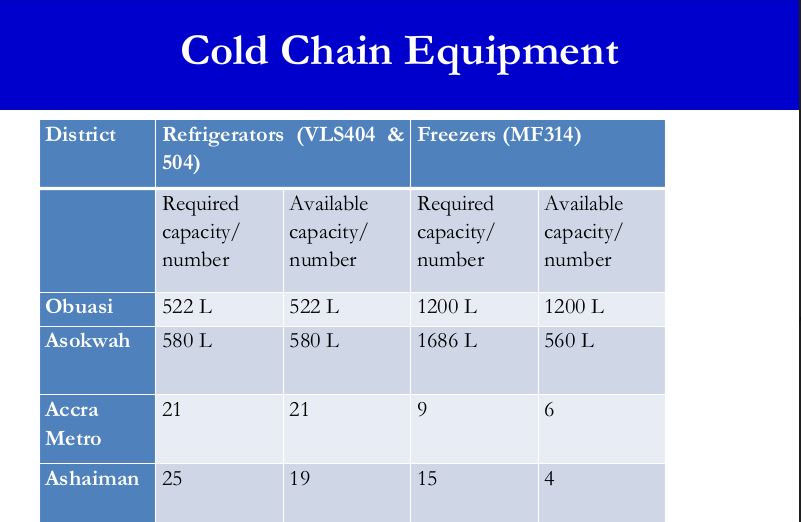
He said this is one surest way to ensure that health facilities are adequately resourced to tackle possible pandemics in the future.
A fair distribution of the CCEs and the vaccine logistics, he stressed, would ensure the country gets a resilient health institution that could stand the test of any similar potential pandemic.
“All of us know that 2020 was a bad year globally because of Covid, and Ghana as a country put in place certain measures to contain the spread of the virus. One key thing that was done, of course, was vaccination. So, what SEND Ghana, in partnership with PTF did, was to monitor the Covid vaccinations.
… so we sought to monitor to see to what extent health personnel at vaccination centres were actually following NDVP. Another was also to assess citizens who have gone to vaccinate, their experiences as to how the vaccination went; whether they were satisfied or otherwise, and once we did that, we also had to focus on certain specific groups – health workers and teachers,” he stated.
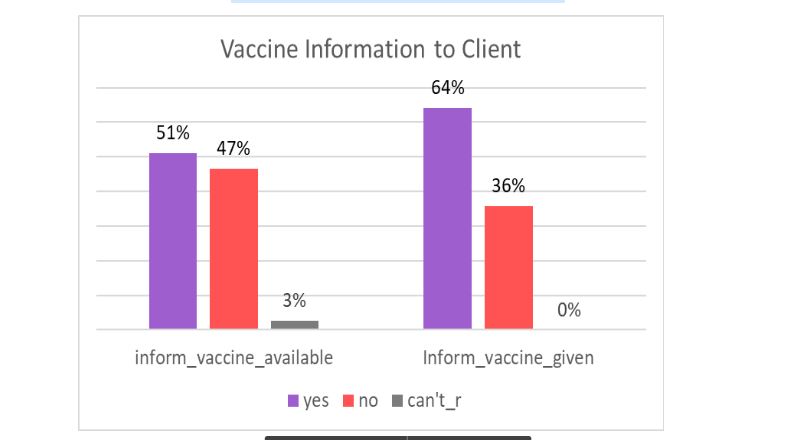
General satisfaction
From the report, many beneficiaries of the vaccination in the Greater Accra and Ashanti regions were averagely satisfied with the professionalism of health workers.
75% of interviewees estimated they spent between a minimum of one minute and a maximum of 10 minutes at the vaccination centres.
The remaining 25% spent beyond 10 minutes with a maximum time spent of two hours.
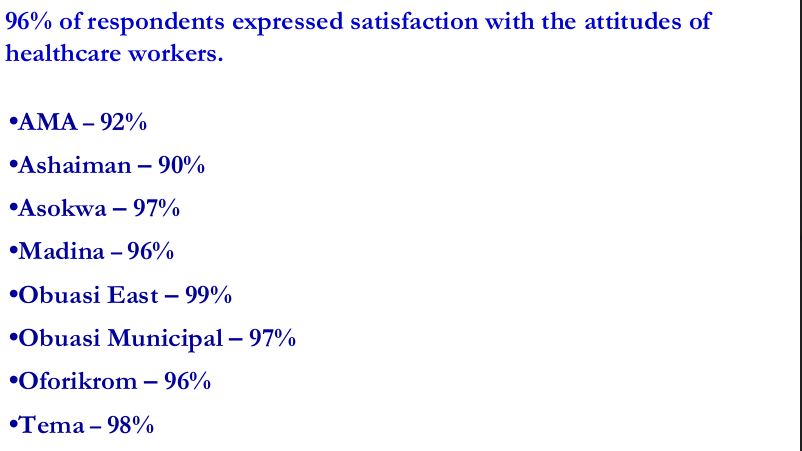
“Overall, 96% of interviewees indicated that they were satisfied with time spent at vaccination centres. More than half (56%) of the interviewees indicated healthcare personnel educated them about possible effects of the vaccines and provided after-care instructions such as strategies to reduce the side effects of injection site pains and fevers.
The Ghana Health Service should commend its staff for exhibiting good attitude and professionalism during the vaccination exercise,” the report recommended.
SEND Ghana
The SEND Ghana monitoring and report were undertaken with funding support from the Partnership for Transparency Fund (PTF).
It involved exit interviews from a total of 677 people between the ages of 20 and 60 plus years.
SEND Ghana is a non-governmental organisation whose policy research and advocacy focus on pro-poor policy and development programme monitoring in Ghana, as well as service delivery through the promotion of livelihood security.
Latest Stories
-
Stronger cedi, lower prices: Decathlon Ghana slashes prices by 35% on over 500 sports items
1 hour -
Zoomlion deepens Africa expansion with strategic partnership in Kenya
2 hours -
Stronger cedi, lower prices: Decathlon Ghana slashes prices by 35% on over 500 sports items
2 hours -
“Love on the Ropes”- Ebo Whyte impresses again with rollercoaster of love, lies and live band fire
3 hours -
Nzema East Blue Water Guards partner Axim police to foil galamsey operations around Draw River Forest Reserve
3 hours -
Minerals Commission orders Heath Goldfields to cease operations at Bogoso-Prestea Mine amidst possible license revocation
3 hours -
Ghana Music Awards Europe adds ‘Best Political Song’ category to 2025 edition
4 hours -
Azumah Resources refutes claims of selling Black Volta Gold Project
4 hours -
GFA boss Kurt Okraku appointed President of CAF Inter-Club Competitions
5 hours -
More HIV patients not on treatment – New report reveals
6 hours -
NSMQ 2025: A deep dive into Bono, Bono East and Ahafo schools eyeing national glory
7 hours -
Ibrahim Mahama donates GH¢50k to Suzzy Pinamang after funding life-saving eye surgery in UK
7 hours -
NSMQ 2025: Obiri Yeboah SHTS secures 3rd spot in Central Regional qualifiers
8 hours -
NDC Canada chapter applauds Gyakye Quayson’s appointment as deputy Minister for Foreign Affairs
8 hours -
Marie Kore International Tournament set to ignite Rugby fever in Abidjan
8 hours

